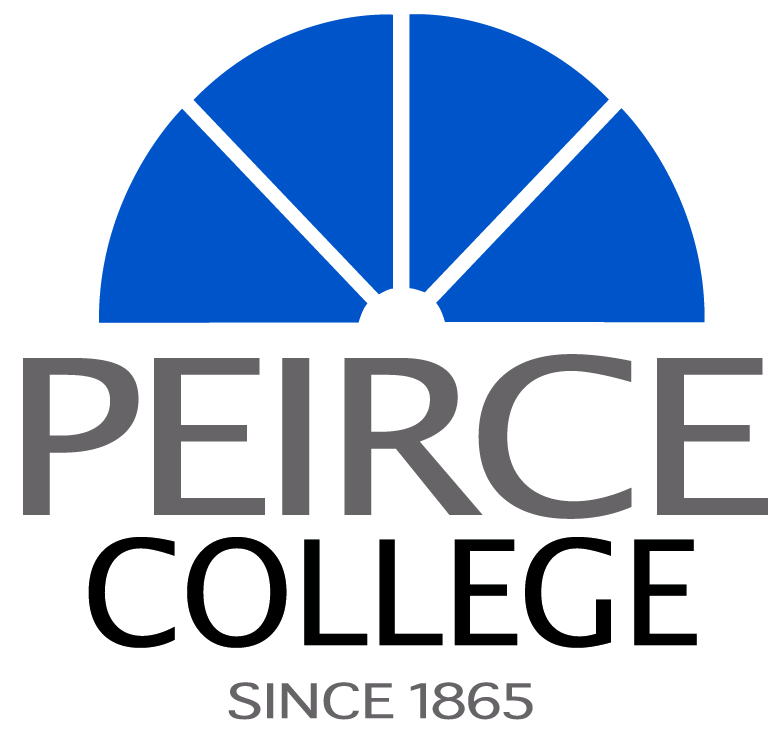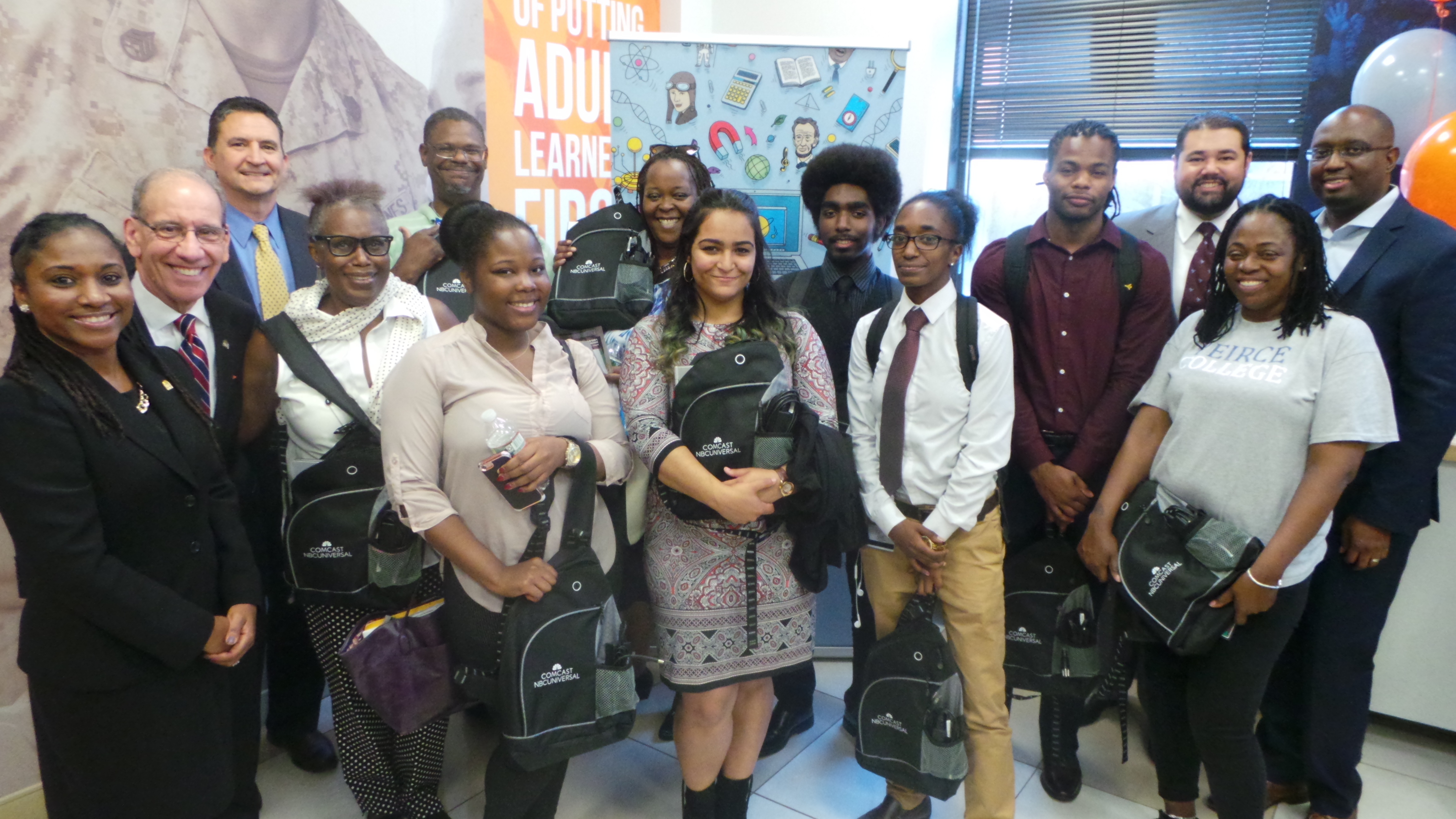
Peirce College in Philadelphia has been committed to finding innovative ways to serve non-traditional learners since 1865. Founded to educate returning Civil War veterans and help them find jobs in the business sector, Peirce has continued this legacy throughout its history. Recently, the College has taken this philosophy to new heights and developed numerous partnerships with organizations throughout the region to directly address community issues, including access to education, digital literacy, financial training, and more. By embracing the idea of partnerships, and focusing our academic lens on how to connect graduates to career pathways, Peirce is developing solutions that will have a positive, sustained impact.
Can Colleges and Universities Have Both Roots and Wings?
At Peirce, we do more than confer degrees. This is both the mantra and the mindset that has guided and shaped our mission for more than 152 years. Despite our long legacy of impact, like other academic institutions, at times we have wrestled and toiled with the fundamental question of whether colleges and universities can have both roots and wings. No matter the venue or audience, this topic continues to provoke and spur healthy debate and mixed reactions. Are there career pathways for both traditional and non-traditional learners? How do we best invest in valuable capital improvement projects while also pouring into critical online learning platforms? Is the goal degree completion or workforce readiness? What role should colleges and universities play in addressing poverty, digital inclusion, and financial literacy? Some of these questions may sound familiar.
The need for social innovation and community impact cannot be overstated. At this seminal moment, whether we are prepared to fully embrace the changing dynamic of higher education or not, talent shortages, workforce development needs, multigenerational poverty, and social inequities have forced us to be more sober and intentional about the role of higher education and our impact beyond conferring degrees.
For Peirce, the strategic coordination of education, business, and philanthropy to address big regional challenges is a framework that we champion and promote. Our institution was founded on the guiding principles that education can be used as an instrument to solve both business and community needs. Today, with roots that anchor our fundamental values, we continue to push our own boundaries and imagination to have an even greater impact.
Meeting Students Where They Are
This year, we took a few additional steps toward reimagining how we operate. By taking the time to listen and then recognizing the changing needs of both employers and non-traditional learners, Peirce has continued to “unbundle” our products and services, allowing for greater consumer choice and flexibility. We have done this by introducing unique innovations like Peirce Fit® and competency-based education (CBE) into our academic offerings. The Peirce Fit model allows students to choose week-to-week whether to attend class on campus or complete the work online. This allows our students, who are primarily working adult learners with jobs, families, and community responsibilities, to fit education into their already busy lives. Peirce is the only college in the country to offer this level of flexibility across our entire curriculum.
To take this flexibility even further, with competency-based education students are not confined to the traditional classroom model. Instead, credit is awarded based on the attainment of competencies that directly correlate to positions in specific industries (and to approved, accredited, academic programming). For example, Peirce currently offers a CBE program in Networking, Administration, and Information Security, and the competencies students earn allow them to show employers the hard, technical skills they have mastered for potential jobs, as well as the soft skills that will help in other aspects of the job. Because our students often need to work and care for their families while in college, these flexible options help them find the balance they need to earn a degree that will propel their social and economic mobility forward.
Taking a More Holistic Approach
Peirce College also identified ways to change the traditional college model by thinking about more than just the student. Using a Two Generation approach, we are partnering with organizations across the region to identify solutions that will impact the whole family. Beginning this spring, in partnership with the United Way of Greater Philadelphia and Southern New Jersey, we will launch a customer service training program, completely designed and delivered by Peirce, for lower income/lower skilled workers and job seekers in the non-clinical healthcare field. While providing hard skills employers in the region are looking for, this workforce program will also include financial literacy, onramps to post-secondary credits, and bridges to family supports that can impact several aspects of the students’ lives.
Caption: Students celebrate the launch of Comcast Internet Essentials at Peirce College -- the only partnership in the Philadelphia region to provide low-cost internet access and affordable computer options to students.
Credit: Peirce College
Using the Two Generation approach, Peirce has also developed a unique partnership with Comcast, Inc. and their Internet Essentials program to address digital literacy and inclusion for students. Comcast now offers Peirce students low-cost internet plans, access to affordable computers, and free internet hotspots, as well as digital trainings. Adult learners and their children will be more connected and exposed to the web and the kinds of digital capabilities/tools that are part of most work environments and routine life tasks. By developing strategies that impact multiple generations within a student’s familial unit, Peirce is able to play a greater role in community impact in the Greater Philadelphia Region.
What’s Next?
At Peirce, we do more than confer degrees. This is more than a tagline or mantra. Both at a systems level and through direct service, we are working to adequately prepare adults and families for life and work. And, we are doing our part to make this region attractive and vibrant for households and businesses. Moving forward, we continue to look for other organizations approaching issues in our community with the same innovative, holistic mindset as Peirce College. We believe you can have both roots and wings -- staying true to your mission while helping redefine the future and impact of higher education. Interested in joining us? Let’s see how we can make a difference together.
Author bio
Malik Brown is a seasoned leader with a unique portfolio of cross-sector experiences. His work and impact span multiple industries, including business, nonprofit, and higher education. In his current role as the Associate Vice President of Workforce Solutions & Community Impact for Peirce College, Malik is responsible for building workforce development solutions, cultivating strategic partnerships, and driving community impact.
Prior to joining Peirce College, Malik was part of the executive team at Diversified Community Services. He was responsible for the adult and family services division of the organization. Malik partnered with colleges and universities, city and state officials, corporations, and foundations to help working adults and families across the region achieve wellbeing and financial stability.
Over the course of his career, Malik has worked in finance, customer relationship management, and diversity and inclusion. His time with national organizations like Inroads, Accenture, and the United Way has provided him with broad management insights and capabilities -- and relationship capital.
Malik is a passionate advocate and champion of social and economic mobility for non-traditional learners. To make a difference and give voice to important social issues, Malik also serves on several nonprofit boards, including ACHIEVEability, the Energy Coordinating Agency, Settlement Music School, and the Business Center for Entrepreneurship and Social Enterprise.
Malik attended Clark University in Worcester, MA where he earned both his BA and MBA. Malik has been married to his wife Ayana for 12 years and has two little girls (Aleena and Myka). He resides in the West Oak Lane section of Philadelphia. Above all else, Malik is most proud of his relationship with his children.



